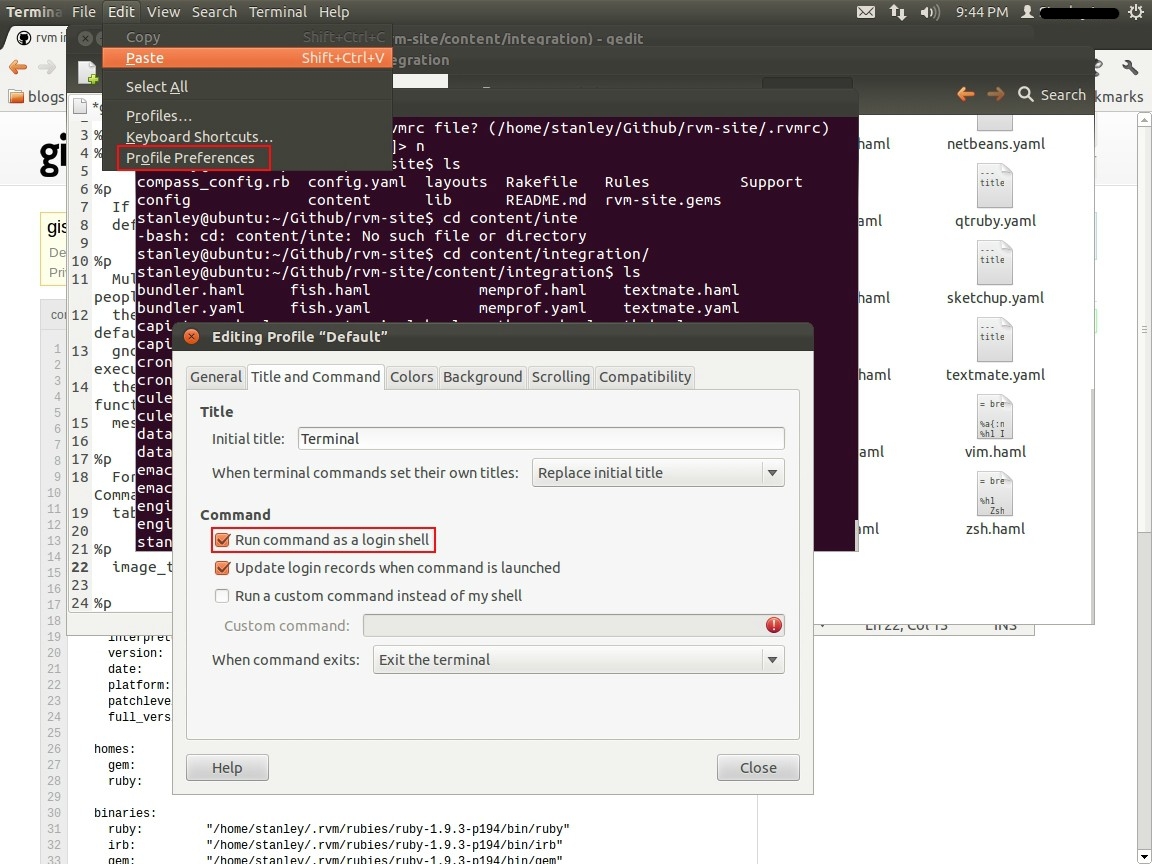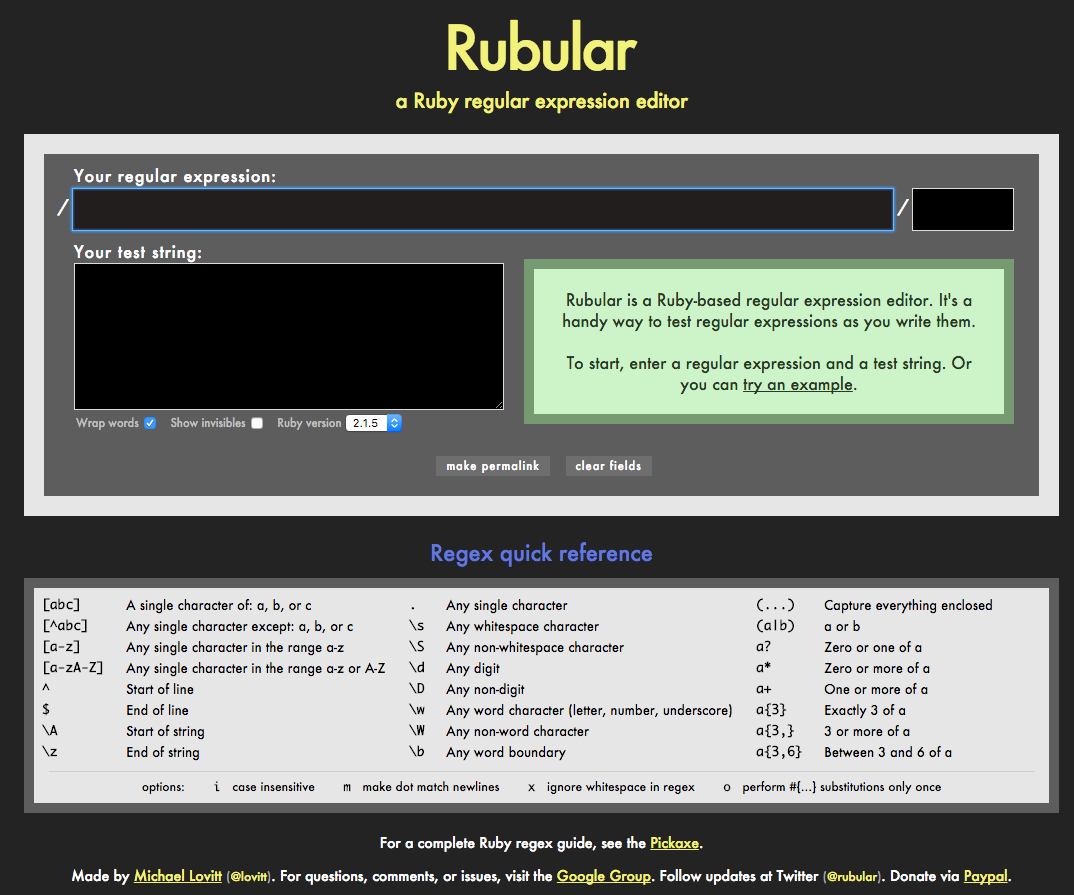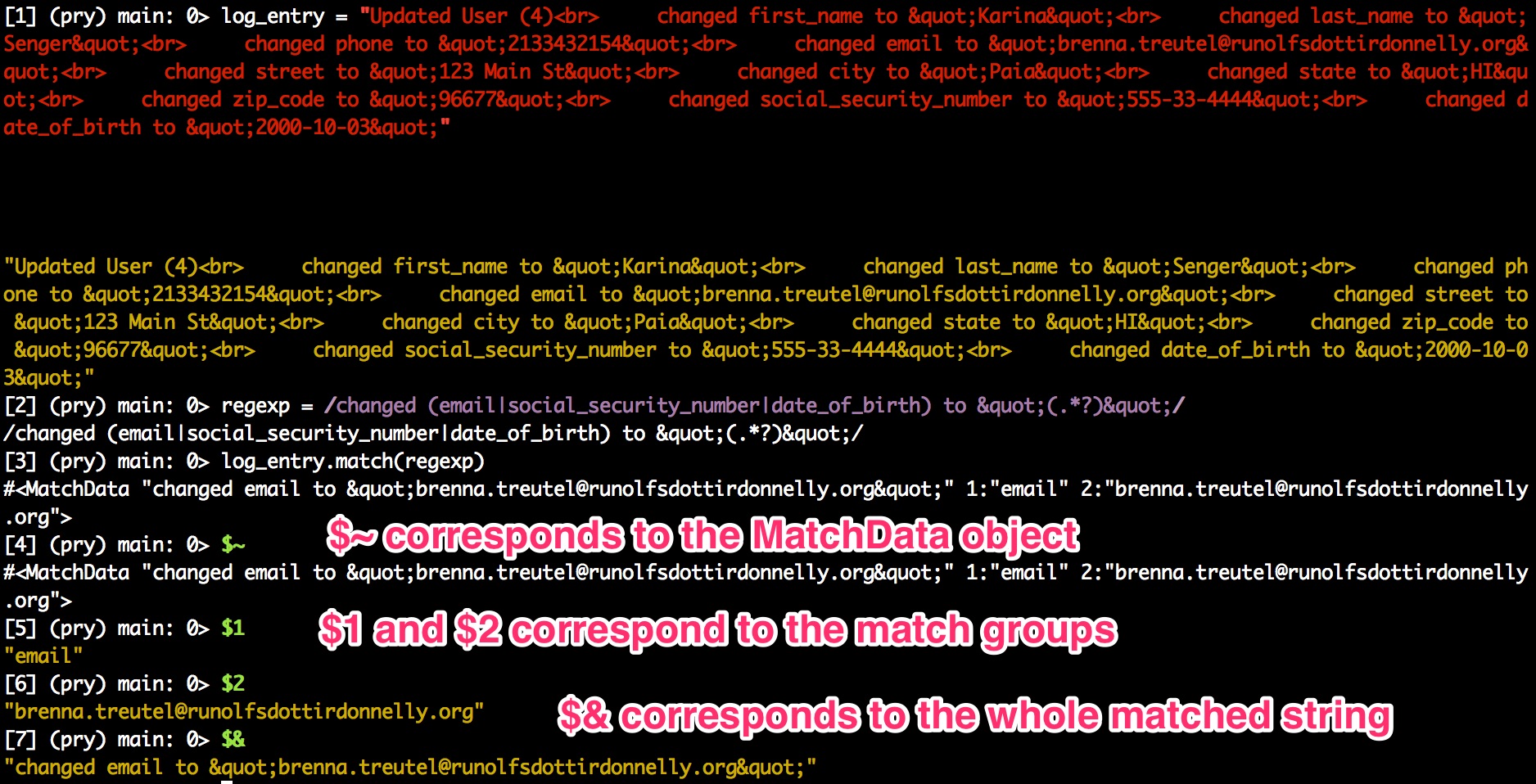



The 3.1.2 standard library (this is the current official release) Additional libraries included with the standard Ruby distribution, such as CGI, OpenURI, and REXML. The Reference is intended to be always up-to-date with the current Ruby version. It describes the language structure, its core classes and standard library, and provides some additional useful information and links for Ruby development. do_something () and do_something_else () # `log_error` only called if `do_something` fails. These are the API documents for the standard library classes and modules in version 3.1.2. This book is a reference for the Ruby programming language. # `do_something_else` only called if `do_something` succeeds. These are meant to be used as flow-control constructs to chain # statements together until one of them returns true or false. class #=> FalseClass # Equality 1 = 1 #=> true 2 = 1 #=> false # Inequality 1 != 1 #=> false 2 != 1 #=> true # Apart from false itself, nil is the only other 'falsey' value !! nil #=> false !! false #=> false !! 0 #=> true !! "" #=> true # More comparisons 1 true 1 > 10 #=> false 2 true 2 >= 2 #=> true # Combined comparison operator (returns `1` when the first argument is greater, # `-1` when the second argument is greater, and `0` otherwise) 1 10 #=> -1 (1 1 #=> 1 (10 > 1) 1 1 #=> 0 (1 = 1) # Logical operators true & false #=> false true || false #=> true # There are alternate versions of the logical operators with much lower # precedence. include? ( :/ ) #=> true # Special values are objects nil # equivalent to null in other languages true # truth false # falsehood nil. String objects differ from Symbol objects in that Symbol objects are designed to be used as identifiers, instead of text or data. scan(p1) public Both forms iterate through str, matching the pattern (which may be a Regexp or a String).

OpenURI::OpenReadopen provides URI::HTTPopen, URI::HTTPSopen and URI::FTPopen, Kernelopen. If the parsed object responds to the 'open' method, 'open' is called on it with the rest of the arguments.
A String object may be created using String::new or as literals. If the first argument is a string that begins with (protocol)://, it is parsed by URI.parse. class #=> Method # Some basic arithmetic 1 + 1 #=> 2 8 - 1 #=> 7 10 * 2 #=> 20 35 / 5 #=> 7 2 ** 5 #=> 32 5 % 3 #=> 2 # Bitwise operators 3 & 5 #=> 1 3 | 5 #=> 7 3 ^ 5 #=> 6 # Arithmetic is just syntactic sugar # for calling a method on an object 1. A String object has an arbitrary sequence of bytes, typically representing text or binary data. class String Parent: Object Included modules: Comparable A String object holds and manipulates an arbitrary sequence of bytes, typically representing. =end # In Ruby, (almost) everything is an object. You can do time math with these & get things like tomorrow’s date: Time.now + 1.day. 1.hour.toi 3600 1.day ActiveSupport::Duration 3.days.ago ActiveSupport::TimeWithZone. You can do this, or start each line in a multi-line comment with the # character. Here you can find some examples, notice how these methods don’t return Time or Date objects, but a custom ActiveSupport class. The beginning line must start with "=begin" and the ending line must start with "=end". For each match, a result is generated and either added to the. The quite a bit faster native extension variant, which is in parts implemented in C or Java and comes with its own unicode conversion functions and a parser generated by the ragel state machine compiler. Both forms iterate through str, matching the pattern (which may be a Regexp or a String ). StringScanner acts like a file pointer - it forwards the pointer when there is a match, thus allowing for multiple scan capabilities on the same string. Control 'sshd-8' do impact 0.6 title 'Server: Configure the service port' desc 'Always specify which port the SSH server should listen.' desc 'rationale', 'This ensures that there are no unexpected settings' # Requires InSpec >=2.3.4 tag 'ssh', 'sshd', 'openssh-server' tag cce: 'CCE-27072-8' ref 'NSA-RH6-STIG - Section 3.5.2.# This is a comment =begin This is a multi-line comment. A pure ruby variant, that relies on the iconv and the stringscan extensions, which are both part of the ruby standard library.


 0 kommentar(er)
0 kommentar(er)
